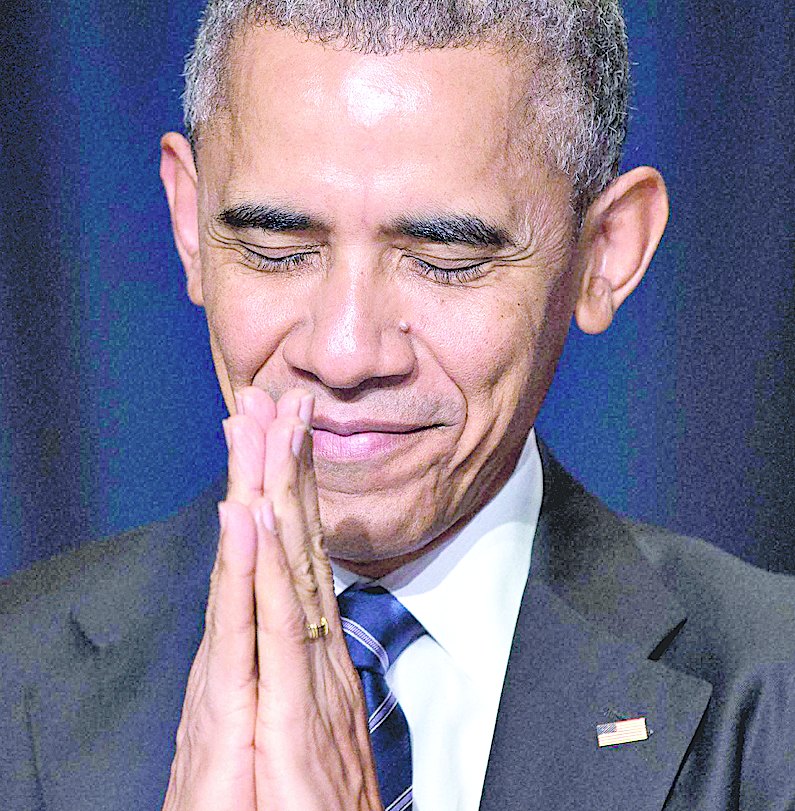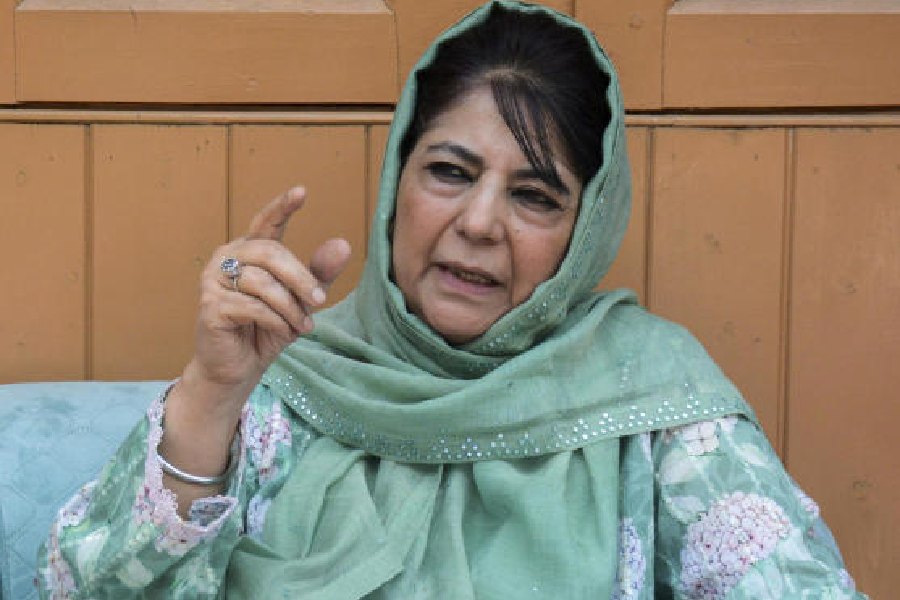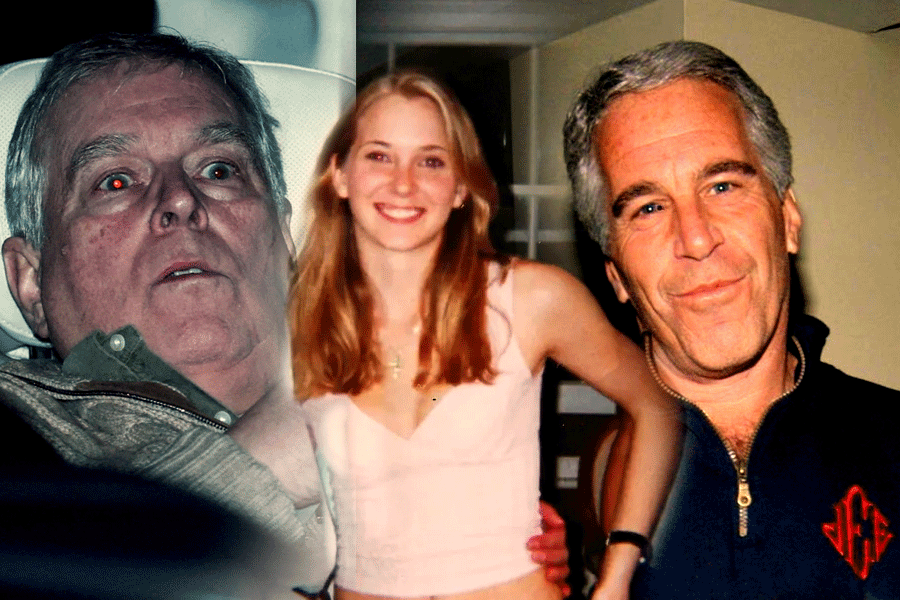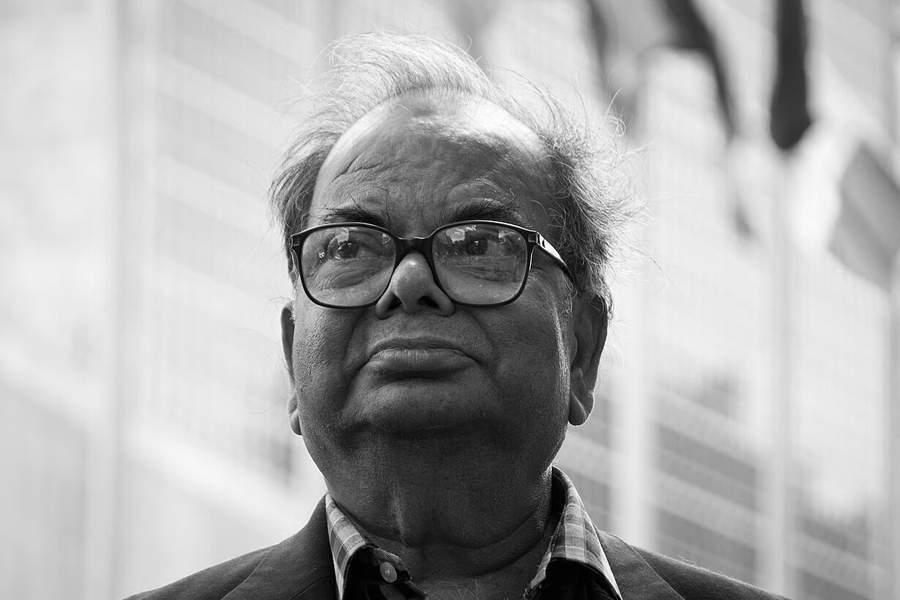 |
Some, at least, among the millions who received an SMS from “D. Pradhan, Minister of State, MoPNG” during the Pujas must have wondered how to react. “Hon’ble PM, Sh. Narendra Modi has called for a Swacch Bharat,” the petroleum and natural gas minister declared as if the prime minister himself and the instant publicity that attends every word someone in his position utters hadn’t already announced it loud and clear. Pradhan’s personal exhortation followed, “Ao Milkar haath badhaayein, Swachh Bharat banaayein!” He wasn’t the only one. The urban development ministry also trumpeted a rallying call. Its e-mail didn’t mention Venkaiah Naidu, the minister, but talking abstrusely of “Neighborhood, Constituency, City, Government, Causes, Interests and Needs”, ended with a resounding “Together, let us make it a SWACHH BHARAT!”
Various commercial organizations are clambering on the bandwagon. Celebrities are rushing to board it. Broom-in-hand pictures could do wonders for their careers. A film star proposed himself as brand ambassador, presumably not of the India Modi wants to cleanse. An equally eager Opposition politician must have been dismayed to discover that, as with non-alignment, cleanliness alone is not enough: what matters is the side on which you are clean. Lesser folk with no self to promote and unable to see any difference between clean and unclean parties welcomed Modi’s necessary initiative. But it’s puzzling why the first government with an absolute majority in 30 years doesn’t use its indisputable authority to force existing armies of jemadars — call them safai karmacharis if you will — to do the job for which they are paid and clean up the offices, institutions and public places that are their responsibility.
Jyoti Basu used to claim Calcutta’s streets would remain dirty until we imported some new-fangled motorized cleaner he had seen in Scandinavia. He had a vested interest in ensuring that all those municipal sweepers who once swept and hosed down the streets at daybreak continued to draw their salaries (and overtime) without ever reporting for work so long as they supported the party. Probably, their non-existent brooms, hose pipes and uniforms were also shown as budgetary expenses. But why should a defence ministry official now say they “are all buying brooms to clean up the bathrooms”? Has the defence ministry suddenly sacked its cleaners? Or is the government so complacent about our Pakistan and China borders that defence officials can devote their energy to sweeping and swabbing, just as in Krishna Menon’s time they turned their hand to making kettles and cookers?
Confusion is inevitable. On the one hand, Modi promises to clean the Ganga; on the other, Sushma Swaraj cites religious reasons for more funeral pyres on its banks. Modi is seen as a Hindu politician. He has given the cleanliness drive an odour of sanctity by linking it with Gandhi Jayanti and involving sundry mutts, missions and mahants, not all known for selfless public service. But such ploys no longer work with the irreverent masses. House owners who stud their outside walls with tiles of gods and goddesses to discourage urinating know that men with full bladders always find secular spaces between divinities. It is more relevant to understand Mohandas Karamchand Gandhi’s reasons for stressing the importance of cleanliness than to foster phony piety. Gandhi’s campaign wasn’t a devotional offering to the gods. It was forced on him when he found that even (especially?) a sanctum like the Kashi Vishwanath temple in Benares was so filthy. Asking rhetorically why “the lanes of our sacred temple should be as dirty as they are”, Gandhi brought his surprisingly modern mind to bear on a complex problem in almost — but not quite — its totality. Deriding the illusion that swaraj would create sparkling places of worship, he discerned deep structural defects. “The houses round about (temples) are built anyhow. The lanes are tortuous and narrow.” Even “temples are not models of roominess and cleanliness” implied criticism of Hindu architecture.
Yet, even Gandhi shied away from castigating the human element. His deep humanism would not allow him to blame the men and women whose lifestyle make and keep India dirty. A practical administrator who demands results must take a less idealistic view of people. He must recognize that industrialists and factory owners who are the power behind the political throne have degraded the Ganga and its tributaries into channels of sludge. He must admit that hordes of Indians defecate and urinate in the open. He must acknowledge that millions constantly spit wherever they please and blow their noses and wipe the snot on the nearest wall. He cannot but know that ritual cleanliness doesn’t always translate into hygiene. In practice, nothing prevents someone (even pujaris) from picking his nose or scratching his groin before doling out food or prasad. He must have the courage to tackle abattoir practices, especially the Muslim ones. The bazaar’s slush and scraps remind us that many luscious vegetables grow in garbage.
Poverty isn’t the only reason though it is often synonymous with squalor. Those who worry about the next meal cannot afford to worry about the next bath. Heat and dust, being without electricity, flies and insects, sweating bodies, cramped living quarters, the lack of toilets, the absence of clean flowing water, soap, oil, a change of fresh clothes and, above all, leisure time all make grubbiness unavoidable. But the revered Manikuntala Sen, a leading light of the Communist movement, mentions in her posthumously published memoir, In Search of Freedom: An Unfinished Journey, a doctor — a doctor, mind you — who mopped his face with his handkerchief and then strained the tea through it. Tea was poured in another house through an all-purpose gamchha or towel. Dirty habits of a different kind are also the luxury of self-indulgent people far richer than the doctor. I once found a washbasin spattered with paan juice in the men’s lavatory of one of our grandest clubs.
Singaporeans like to boast Confucian communitarianism keeps their city glittering. Foreigners who remember what Singapore was like (a Briton called it “a pestilential and immoral cesspool”) before Lee Kuan Yew imposed discipline with dire penalties think differently. There came a time when Singaporeans became so rich that even fines didn’t curb their littering: the government countered in 1992 with the public humiliation of corrective work orders. What comparable levers can Modi use with 1.25 billion Indians? Society here is riddled with built-in disadvantages. If new hygiene and cleanliness laws are enacted, inspectors charged with enforcing them will baulk at penalizing fellow Indians for not observing standards they themselves disregard whenever possible. Or a bribe will prompt them to look the other way. It’s anybody’s guess how much of the Rs 200,000-crore budget (presumably earmarked for sanitation, sewerage, bustee clearance, garbage management and effective street cleaning) will be squandered on wasteful projects or siphoned into private pockets as publicity-seekers lap up the promised mix of China’s Great Leap Forward and Great Proletarian Cultural Revolution in a joyously religious jamboree.
When all the physical impediments to cleanliness Gandhi listed have been removed, there still remains the one factor he would not acknowledge — habit. It is a cliché that beneficiaries of Britain’s sum clearance projects stored coal in the baths in their new homes. Education, emulation and improved economic status eventually taught them better. If I were asked how long it would take their Indian counterparts to make the transition, I would be tempted to double the period in Napoleon’s alleged reply when asked when a child’s education should begin: twenty years before its birth, the mother must be educated. Even so, I can’t help but wonder who will educate the mother. But the battle for cleanliness won’t even begin unless the authorities insist that existing jemadars, sorry, safai karmacharis, do their work properly.










